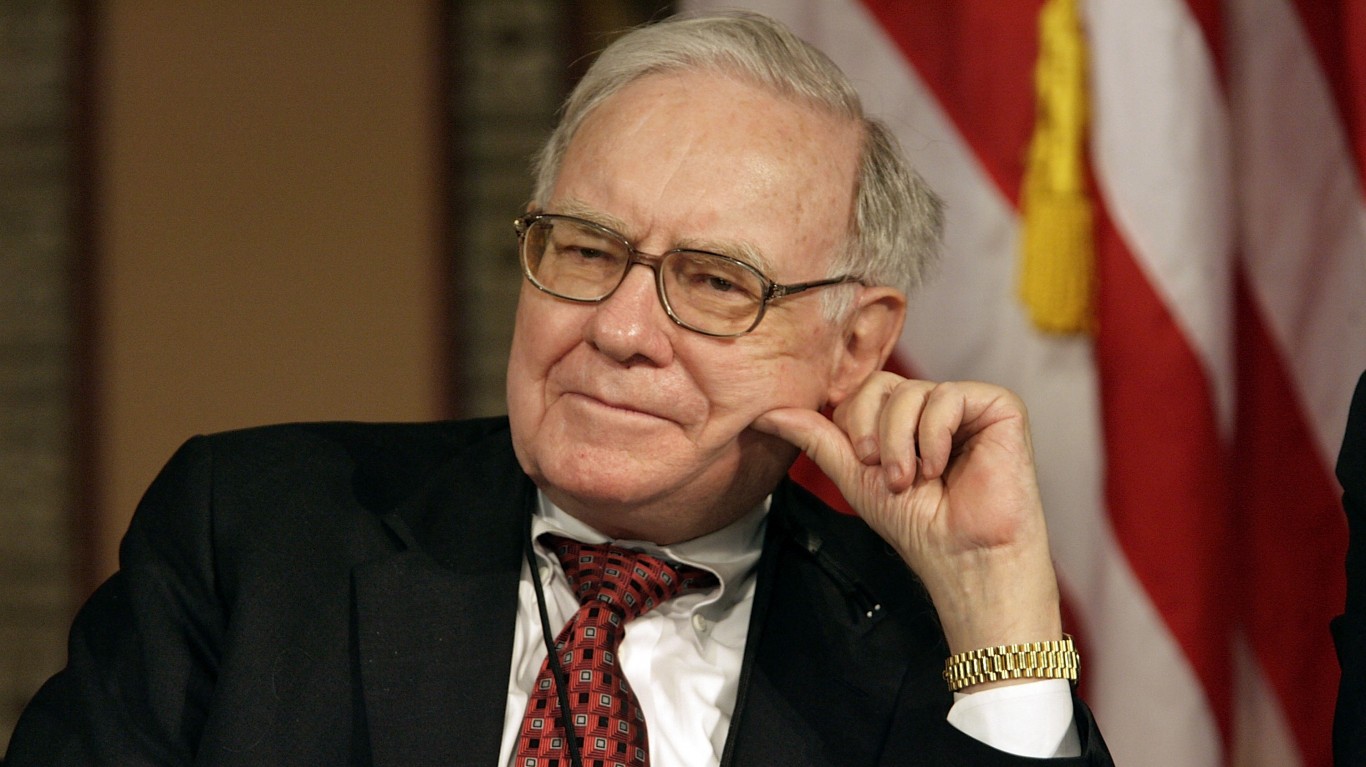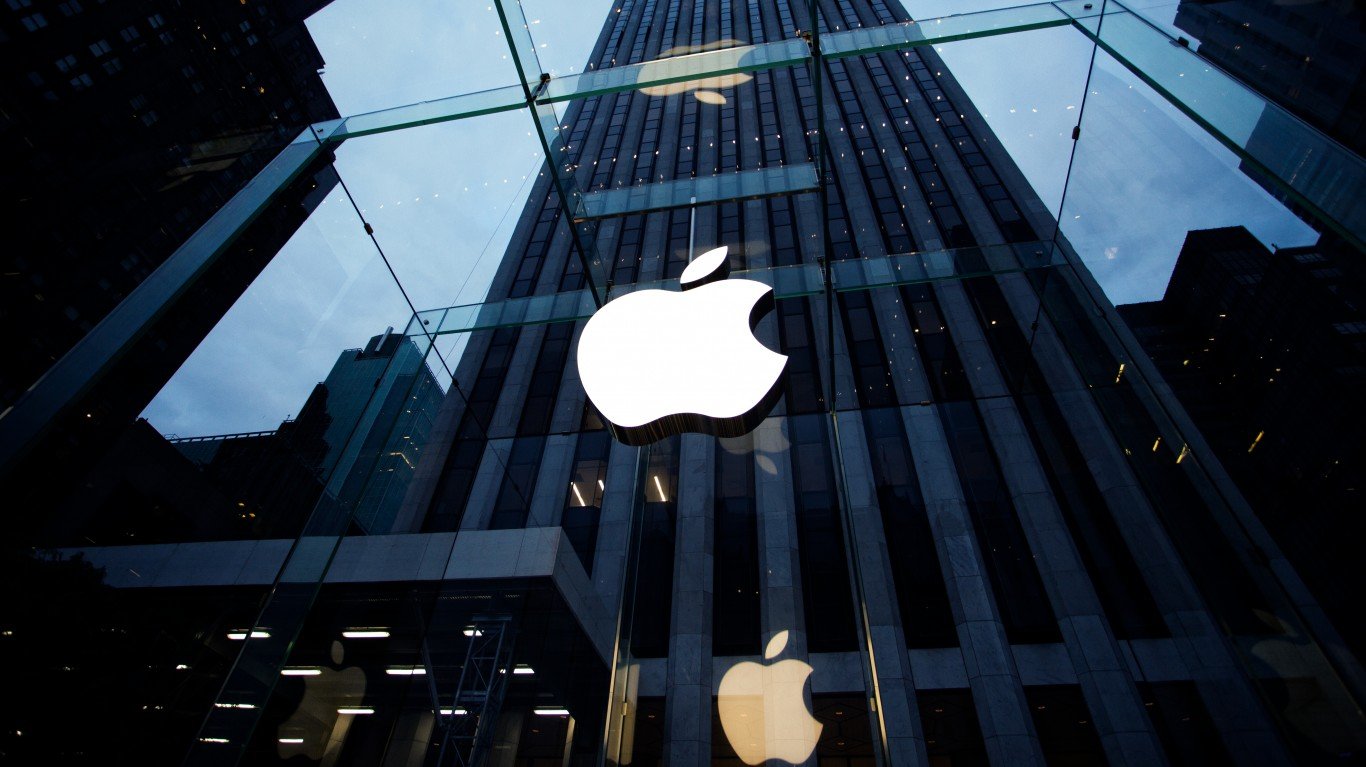

Share buybacks get a bad rap in most cases. While shareholders often prefer that a company boost dividends instead of repurchase shares, there’s at least one investor who has a few good words to say about buybacks.
In his annual letter to shareholders released last Saturday, Warren Buffett talked about the value of Berkshire Hathaway’s investment in Apple Inc. (NASDAQ: AAPL) and how the power of stock repurchases has boosted that value.
[in-text-ad]
According to Buffett:
Our cost for [our stake in Apple] was $36 billion. Since then, we have both enjoyed regular dividends, averaging about $775 million annually, and have also – in 2020 – pocketed an additional $11 billion by selling a small portion of our position.
That original 2016 stake in Apple amounted to around 5.2%. The increase to Berkshire’s current 5.4% stake was “costless” to Buffett’s firm and its shareholders.
Even better for shareholders, Buffet said, is that Berkshire Hathaway repurchased its own shares during the 2.5 years between 2018 and now and that shareholders now “indirectly own a full 10% more of Apple’s Assets and future earnings” than they did in 2018. As Buffett put it, “The math of repurchases grinds away slowly, but can be powerful over time. The process offers a simple way for investors to own an ever-expanding portion of exceptional businesses.”
According to a report last May from Fortuna Advisors, the 364 largest U.S.-listed firms spent over $3 trillion dollars on share repurchases between 2015 and 2019, an all-time high for a five-year period. In 2016 and 2017, as much as 30% of share buybacks were funded by corporate debt.
The International Monetary Fund (IMF) warned in October 2019 that debt-funded dividends and buybacks were financial risk-taking that could “considerably weaken a firm’s credit quality.” The Harvard Business Review said this about share buybacks in 2020:
Taking on debt to finance buybacks, however, is bad management, given that no revenue-generating investments are made that can allow the company to pay off the debt. In addition to plant and equipment, a company needs to invest in expanding the knowledge and skills of its employees, and it needs to reward them for their contributions to the company’s productivity. These investments in the company’s knowledge base fuel innovations in products and processes that enable it to gain and sustain an advantage over other firms in its industry.
Doesn’t this apply to Apple? It would if Apple didn’t generate so much cash that it is running out of places to park it or put it to use.
Most investors don’t have Buffett’s patience, and many are not satisfied with an average compounded annual gain of 20% for a period of more than 50 years. According to Buffett’s letter, Berkshire Hathaway’s overall gain between 1964 and 2020 is 2,810,526%, more than 10 times better than the gain (plus dividends) in the S&P 500 index.
Apple shares gained more than 5% on Monday to close at $127.79, in a 52-week range of $53.15 to $145.09. The consensus price target on the stock is $151.75, and the dividend yield on an annual payment of $0.82 is 0.64%.
Essential Tips for Investing: Sponsored
A financial advisor can help you understand the advantages and disadvantages of investment properties. Finding a qualified financial advisor doesn’t have to be hard. SmartAsset’s free tool matches you with up to three financial advisors who serve your area, and you can interview your advisor matches at no cost to decide which one is right for you. If you’re ready to find an advisor who can help you achieve your financial goals, get started now.
Investing in real estate can diversify your portfolio. But expanding your horizons may add additional costs. If you’re an investor looking to minimize expenses, consider checking out online brokerages. They often offer low investment fees, helping you maximize your profit.
Thank you for reading! Have some feedback for us?
Contact the 24/7 Wall St. editorial team.
 24/7 Wall St.
24/7 Wall St.


